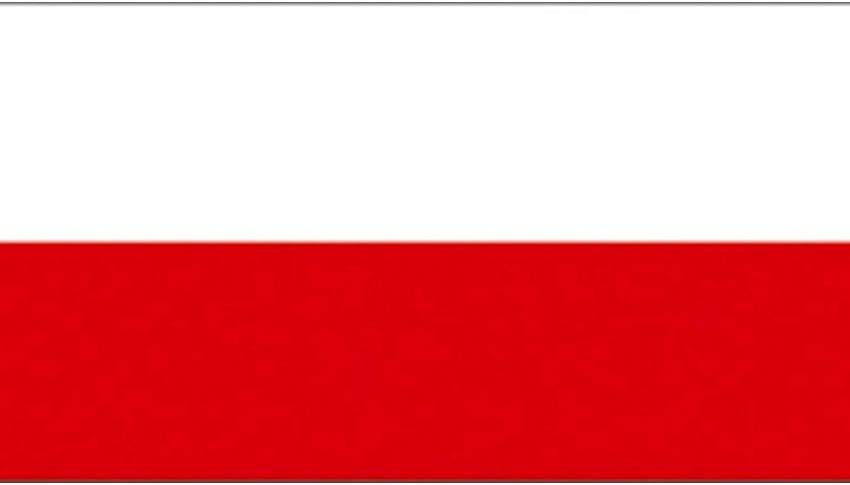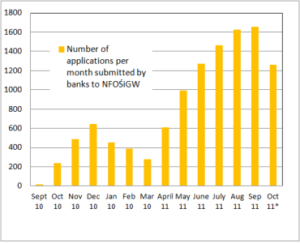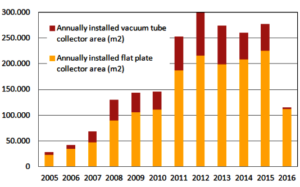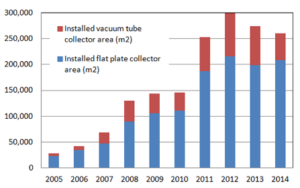On 25 May, the new Polish incentive programme Prosument began to accept applications from municipalities. By August 2014, the same will be true for residential homeowners. Prosument offers grants worth 20 % of the investment costs, grants which can be combined with a 1 % interest loan to finance the remaining investment. The latest changes by the programme’s administrator, the National Fund for Environmental Protection and Water Management, NFOŚiGW, have been met with strong criticism. Grzegorz Wiśniewski, President of the Institute for Renewable Energy (EC BREC IEO), has said that the current conditions of the programme would lead to a drastic drop in sales.
First of all, it should be noted that Prosument’s budget for subsidising solar thermal systems is much lower than the one of the current grant scheme, because the EUR 150 million over two years must be shared with heat pumps, biomass stoves, small wind turbines and photovoltaic installations.
Moreover, Prosument’s grant level for solar thermal is at 20 % of the investment costs compared to a previous 40 %, which will reduce the demand for grants. Wiśniewski has already confirmed that “people were less motivated to invest in alternative energy sources in 2013, because they did not see the same substantial energy price increases as in previous years.” Therefore, the solar thermal collector area installed in Poland in 2013 dropped by 9 % compared to 2012 and was down to 274,000 m², according to IEO market research.
Subsidy for photovoltaic systems is more attractive
However, the third issue is the most serious one: The grant for solar thermal collectors will not be paid unless renewable electricity technologies, such as PV or wind installations, are integrated as well. The customer has to spend at least 20 % of the investment costs – no less than PLN 8,000 (EUR 1,900) – on renewable sources of electricity. This new regulation was introduced in February 2014 by the supervisory board of NFOŚiGW.
The fourth and last item on the list concerns the higher level of incentive for photovoltaic installations: 40 % of the investment costs – double the amount as for solar water heaters. Hence, photovoltaic systems become more attractive in the new scheme and can be installed as an individual measure without additional components. “Whereas according to our calculations, the terms for photovoltaic systems are not particularly interesting, as it will take 15 years to achieve return on investment, the 40 % grant slogan, however, may attract lots of customers,” Wiśniewski added.
Great potential for solar space heating
The IEO president is fairly pessimistic about the future development of the solar thermal market in Poland: “Although during the first half of the year, the drop in sales will not be visible, as we predict a solid 150,000 m² installed, the second half may see a 50 % drop in sales to 75,000 m².” Others agree: “We expect a drop in sales on the retail market. Tying the solar thermal grant to renewable electricity sources has been a very bad idea. The 20 % investment share for renewable electricity is not really enough to buy a good PV generator or a small wind installation,” Leszek Skiba, CEO of Hewalex, said.
“Although Prosument is not as attractive for solar thermal as the current scheme has been, the 1 % interest loan is a step forward and keeps the interest in solar thermal investments,” Paweł Grzegorczyk, owner of Polish solar thermal system supplier Keno, said.
Poland offers great solar thermal potential, according to IEO data. The collector area installed per capita is 0.04 m², a tenth of the same figure in Austria. This is why other experts do not see the same huge drop in sales next year: “There is big potential in the solar space heating market, because at present, most collectors that are sold only heat up domestic hot water,” Janusz Starościk, President of the Association of Manufacturers and Importers of Heating Appliances (Polish acronym: SPIUG), said.
This news piece was written by Marcin Czekanski, a Polish journalist specialised in renewable energies and based in Szczecin, Poland.
Find more details on the Prosument Programme below that ended in 2016.
|
Country
|
Poland
|
|
Name of programme
|
Prosument – Financial Scheme for Micro-Renewable installations
|
|
Type of incentive
|
Grant and Loan
|
|
Eligible technologies
|
Heat pumps, photovoltaics, small wind turbines and micro CHP, solar thermal collectors, biomass boilers
Focus is on renewable sources of electricity. Heat sources are accepted only if together with electric sources (eg: heat pump + PV, solar thermal collector + PV, etc)
|
|
Applicable sectors
|
Residential and multi-family houses
|
|
Amount
|
Grant up to 20 % of the investment costs for renewable heat sources including solar water heaters and 40 % for renewable electricity systems. Additional there is a low-interest loan with 1 % available.
|
|
Maximum support
|
Maximum eligible costs for a residential house with one renewable energy source is 100 000 PLN (with more than one: 150 000 PLN)
Maximum unit cost per kW:
- solar thermal: 3,500 PLN/kW
- for PV 8,000 PLN/Kw
|
|
Loan
|
Loan of up to 80 % of the eligible costs that are not granted
|
|
Requirements for system
|
Solar collectors must have certificate PN-EN 12975-2 or Solar Keymark
|
|
Finance provider
|
Fund for Environmental Protection and Water Management (NFOŚiGW) through local communities, regional funds and commercial banks
|
|
Total funds
|
Budget of Polish Zloty (PLN) 800 million for 2014 to 2022, no part of the budget allocated for solar thermal.
|
|
Funding source
|
Public money in 2014 to 2016, additional EU funding starting in 2016
|
|
Effective date
|
June 2014
|
|
Expiration date
|
Expiring year is 2022, rules might change when EU funding will start in 2016
|
|
Website
|
Details on the rebate:
https://www.nfosigw.gov.pl/oferta-finansowania/srodki-krajowe/programy-priorytetowe/prosument-dofinansowanie-mikroinstalacji-oze/
|
|
Country
|
Poland
|
|
Name of programme
|
Prosument – Financial Scheme for Micro-Renewable installations
|
|
Type of incentive
|
Grant and Loan
|
|
Eligible technologies
|
Heat pumps, photovoltaics, small wind turbines and micro CHP, solar thermal collectors, biomass boilers
Focus is on renewable sources of electricity. Heat sources are accepted only if together with electric sources (eg: heat pump + PV, solar thermal collector + PV, etc)
|
|
Applicable sectors
|
Residential and multi-family houses
|
|
Amount
|
Grant up to 20 % of the investment costs for renewable heat sources including solar water heaters and 40 % for renewable electricity systems. Additional there is a low-interest loan with 1 % available.
|
|
Maximum support
|
Maximum eligible costs for a residential house with one renewable energy source is 100 000 PLN (with more than one: 150 000 PLN)
Maximum unit cost per kW:
- solar thermal: 3,500 PLN/kW
- for PV 8,000 PLN/Kw
|
|
Loan
|
Loan of up to 80 % of the eligible costs that are not granted
|
|
Requirements for system
|
Solar collectors must have certificate PN-EN 12975-2 or Solar Keymark
|
|
Finance provider
|
Fund for Environmental Protection and Water Management (NFOŚiGW) through local communities, regional funds and commercial banks
|
|
Total funds
|
Budget of Polish Zloty (PLN) 800 million for 2014 to 2022, no part of the budget allocated for solar thermal.
|
|
Funding source
|
Public money in 2014 to 2016, additional EU funding starting in 2016
|
|
Effective date
|
June 2014
|
|
Expiration date
|
Expiring year is 2022, rules might change when EU funding will start in 2016
|
|
Website
|
Details on the rebate:
https://www.nfosigw.gov.pl/oferta-finansowania/srodki-krajowe/programy-priorytetowe/prosument-dofinansowanie-mikroinstalacji-oze/
|



